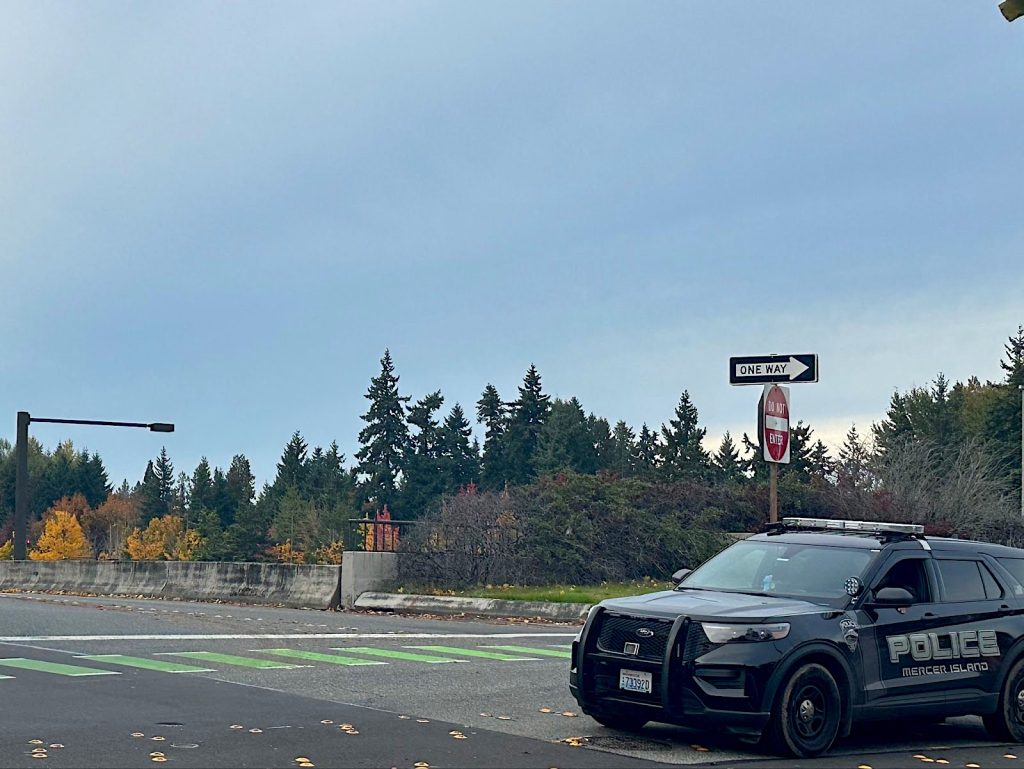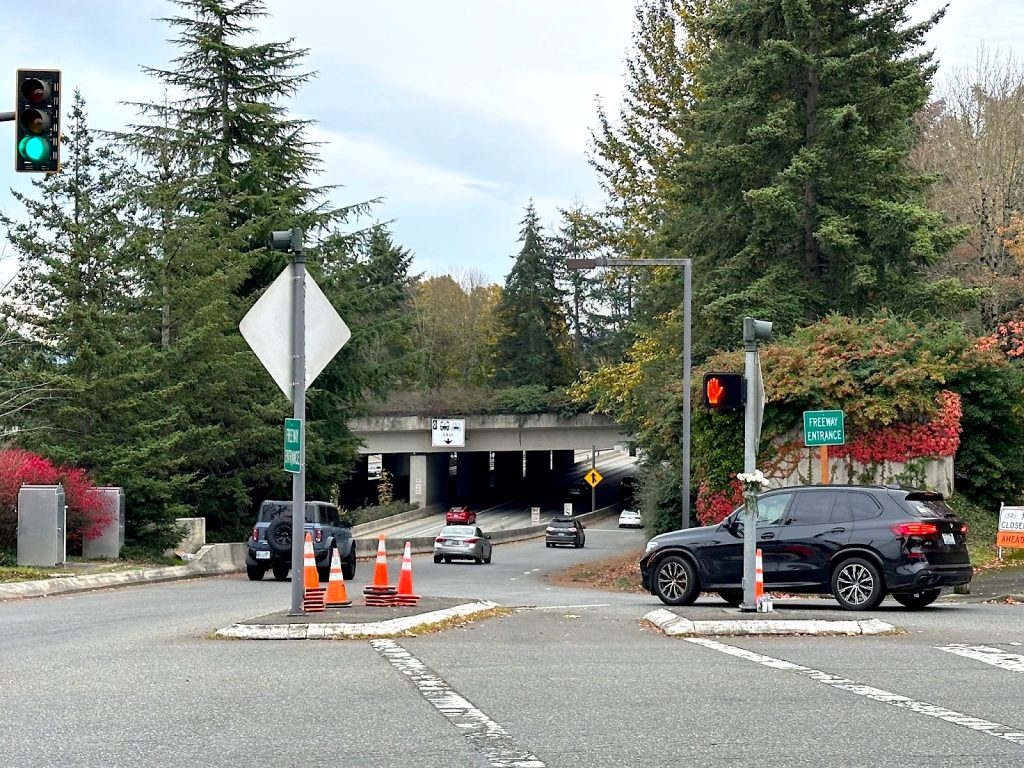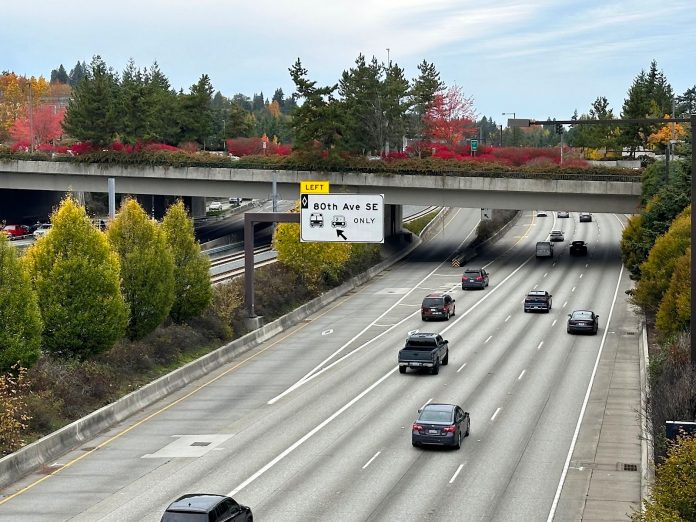Critics have raised concerns about a lack of privacy, data security, or demonstrated effectiveness in reducing crime.
Mercer Island has a new initiative under consideration: Whether to implement a new automated license plate reader system, designed to track everyone entering and leaving the small Eastside community.
The system, made by surveillance technology company Flock Safety, is touted as the solution to solving auto theft and home break-ins. Flock markets directly to police departments around the country, advertising themselves as a low-cost way to create a searchable database of all vehicle movements.
In September, Flock, in conjunction with the Mercer Island Police Department, gave a presentation to the City Council, outlining the capabilities and soliciting initial feedback from councilmembers. The presentation started well, but councilmembers’ questions outlined several concerns with the technology.

Councilmember Ted Weinberg asked about the efficacy of this system, stating “I’d be curious to know whether those jurisdictions observed a measurable decrease in crime.” The Flock Safety representative dodged the question, instead describing how reliable the cameras are.
Police Chief Ed Holmes followed up, saying the nearby city of Medina, with the same system in place, has been able to recover stolen vehicles… but couldn’t readily point to any overall reduction in crime.
Several councilmembers then brought up privacy concerns with this system, given that all license plate scans are subject to public records requests. Deputy Mayor David Rosenbaum introduced the scenario of a stalker who knew their victim’s license plate number: “What would prevent a stalker from using a disclosure request to find out what time they are coming and leaving?”
The representative from Flock Safety again struggled to respond, and incorrectly stated that the system would not provide access to the date, time, or location of the license plate scan.
Despite these concerns, City Manager Jessi Bon indicated that the study will move forward, with a follow-up discussion expected later this year.
Medina’s Recently Upgraded System
The nearby city of Medina, a smaller and wealthier community than Mercer Island, has had their own municipal camera system in place for several years. Only within the last year did they upgrade their system to the Flock Safety product, moving from a largely manual data retrieval process to the detailed, searchable system they have now.
When asked about the capabilities of this system, the Medina Police Department was happy to show how it all works. Police Captain Austin Gidlof demonstrated the many parameters that the police (and public) can use. Not just the license plate is needed – one can search by vehicle color, make, and type, as well as the presence of vehicle features, such as roof rack, bumper stickers, etc. When asked about how well the system works to reduce crime, Gidlof said that the primary goal was deterrence and tracking stolen vehicles.
Contrary to what the Flock Safety representative stated, the system makes the precise date, time and location all easily accessible for download. The police department affirmed this is all available via a records request, either as a search or in bulk download; the captain went ahead and printed a snippet of the bulk data download, showing how many data points were available just from two minutes of scanning.

Civil Liberties Groups Raise Concerns
Human rights groups such as the American Civil Liberties Union (ACLU) and the Electronic Frontier Foundation (EFF) have begun sounding the alarm regarding the potential for automated license plate readers to be another step towards slowly expanding the power of the police.
Overreliance on the technology is one major concern, with examples such as an arrest of a Black woman in the Bay Area, pulled over at gunpoint because a license plate reader misread her plate as belonging to a stolen vehicle. In Aurora, Colorado, an entire family was removed from their SUV and handcuffed at gunpoint after the technology misidentified their plate as one belonging to a stolen motorcycle.
Furthermore, department policy to safeguard their data is only as strong as the honor of their officers. A female officer in Minnesota discovered she had been tracked by 104 officers in 18 different agencies, a clear violation of federal data privacy laws. Even when legal, data requests can represent a serious danger to individual rights; a University of Washington report described how lax data sharing policies allows more conservative jurisdictions to track illegal immigrants and women seeking abortions across state lines. Flock Safety’s own interface allows for “immigration violators” as a searchable category.
Despite these concerns, there is very little demonstrated effectiveness towards deterring the crimes these cameras seek to prevent. A 2021 study of Piedmont, California’s extensive license plate reader system showed moderate success in recovering stolen vehicles, but no overall reduction in auto theft. A 2015 analysis by the EFF of license plate reader use in Oakland showed no overall reduction in crime from the use of their system.

Washington cities should be wary to follow the lead of Medina in employing an automated license plate reader system. With major privacy concerns and low demonstrated efficacy, we risk empowering private companies to profit off our insecurity, for no real public benefit.

Kian Bradley (Guest Contributor)
Kian Bradley is a Mercer Island resident. He is an advocate for better cycling infrastructure and greater housing diversity on the Eastside.

